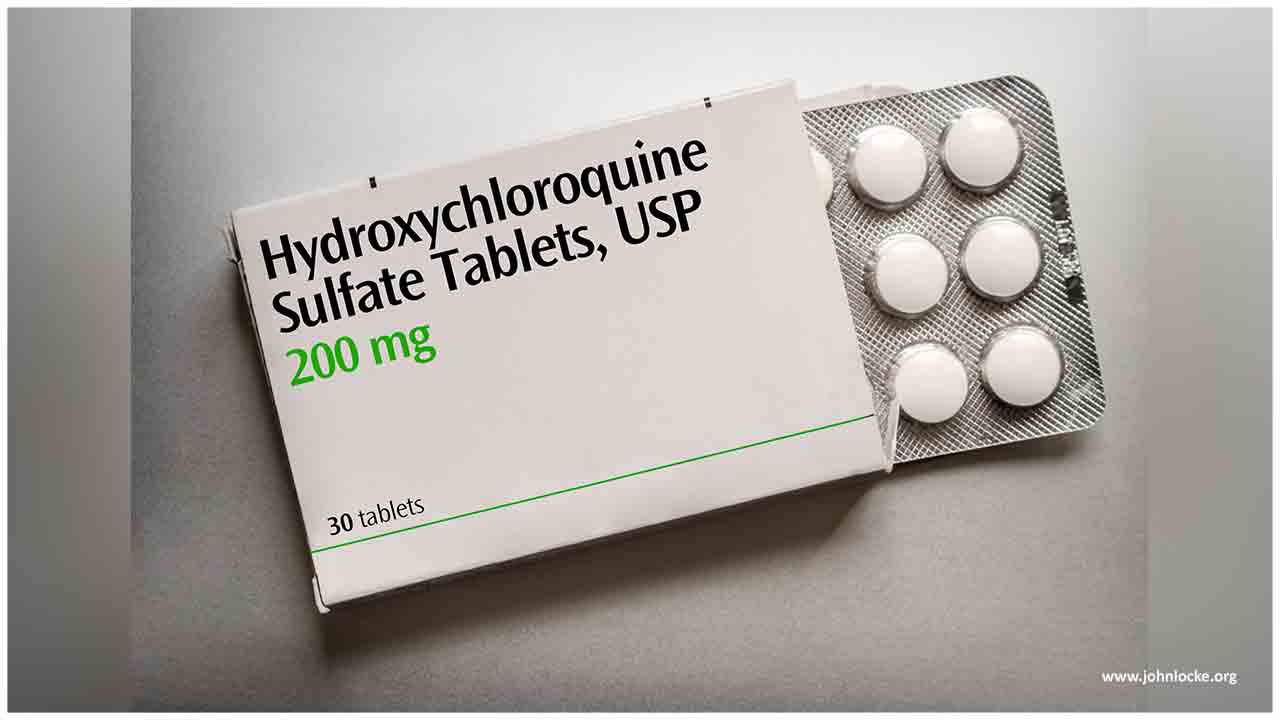The aminoquinolines chloroquine and hydroxychloroquine are broadly utilized in the treatment of jungle fever and rheumatic illnesses, and they have been recommended as viable medications for coronavirus ailment 2019 (Covid-19) on the grounds of both mitigating and antiviral effects.1-4 In the United States, the Food and Drug Administration gave an Emergency Use Authorization on March 30, 2020, that permitted the utilization of these medications in patients with Covid-19 who were not joined up with clinical preliminaries. Rules recommended that these medications be controlled to hospitalized patients who had proof of pneumonia,5, and to date, they have been utilized in a large number of patients with intense Covid-19 around the globe. In any case, until this point in time, there have been no strong clinical preliminaries that have demonstrated the viability of these operators for this disease, and the information that is accessible originated from little investigations that have either been uncontrolled or underpowered to distinguish important clinical impacts.
The first report of hydroxychloroquine as a treatment for Covid-19 depicted 26 patients who had been treated in an open-mark, single-bunch study that included contemporaneous, however nonrandomized controls in clinics in France.6 Patients were treated with hydroxychloroquine at a portion of 200 mg multiple times day by day for 10 days. Information from this investigation was accounted for as demonstrating the viability of hydroxychloroquine in decreasing the viral weight in treated patients (65.0% leeway by day 5, versus 18.8% leeway by day 5 in untreated patients). Be that as it may, information from 6 patients who got hydroxychloroquine was barred from the investigation due to clinical exacerbating or misfortune to development, which makes it hard to decipher the discoveries.
Late work proposes that hydroxychloroquine has more intense antiviral properties than chloroquine, just as a superior security profile.7 In understanding with clinical rules created at our clinical focus, hydroxychloroquine was recommended as a treatment for hospitalized patients with Covid-19 and respiratory trouble, as showed by a low resting oxygen immersion, during the period where patients in this report were conceded.
We inspected the relationship between hydroxychloroquine use and respiratory disappointment at a huge clinical focus giving consideration to a generous number of patients with Covid-19 in New York City. We guessed that hydroxychloroquine use would be related to a lower danger of a composite end purpose of intubation or passing in investigations that were balanced for significant indicators of respiratory disappointment and weighted by penchant scores evaluating the likelihood of hydroxychloroquine use.
Techniques
We analyzed the relationship between hydroxychloroquine use and intubation or passing at an enormous clinical focus in New York City. Information was acquired in regards to back to back patients hospitalized with Covid-19, barring the individuals who were intubated, kicked the bucket, or released inside 24 hours after introduction to the crisis office (study benchmark). The essential endpoint was a composite of intubation or demise in an opportunity to-occasion examination. We analyzed results in patients who got hydroxychloroquine with those in patients who didn't, utilizing a multivariable Cox model with backward likelihood weighting as indicated by the penchant score.
Information SOURCES
We got information from the NYP–CUIMC clinical information stockroom. This distribution center contains all the clinical information accessible on all inpatient and outpatient visits to one of the CUIMC offices (see the Data Extraction area in the Supplementary Appendix, accessible with the full content of this article at NEJM.org). No information was physically disconnected from the electronic clinical record or outlines. The information got incorporated patients' segment subtleties, protection status, fundamental signs, research facility test results, prescription organization information, verifiable and the ebb and flow drug records, chronicled and momentum analysis, clinical notes, authentic release aura for past inpatient hospitalizations, and ventilator use information.
RESULTS
Of 1446 back to back patients, 70 patients were intubated, kicked the bucket, or released inside 24 hours after the introduction and were rejected from the investigation. Of the staying 1376 patients, during a middle follow-up of 22.5 days, 811 (58.9%) got hydroxychloroquine (600 mg twice on day 1, at that point 400 mg day by day for a middle of 5 days); 45.8% of the patients were treated inside 24 hours after introduction to the crisis office, and 85.9% inside 48 hours. Hydroxychloroquine-treated patients were more seriously sick at gauge than the individuals who didn't get hydroxychloroquine (middle proportion of the incomplete weight of blood vessel oxygen to the portion of enlivened oxygen, 223 versus 360). Generally, 346 patients (25.1%) had an essential end-point occasion (180 patients were intubated, of whom 66 in this manner kicked the bucket, and 166 passed on without intubation). In the fundamental examination, there was no huge relationship between hydroxychloroquine use and intubation or passing (risk proportion, 1.04, 95% certainty interim, 0.82 to 1.32). Results were comparative in various affectability examinations.
HYDROXYCHLOROQUINE EXPOSURE
Patients were characterized as accepting hydroxychloroquine on the off chance that they were getting it at study pattern or got it during the subsequent period before intubation or passing. The study benchmark was characterized as 24 hours after landing in the crisis office.
ENDPOINT
The essential endpoint was the time from study benchmark to intubation or demise. For patients who died after intubation, the planning of the essential endpoint was characterized as the hour of intubation.
Conclusion
In this observational investigation including patients with Covid-19 who had been admitted to the emergency clinic, hydroxychloroquine organization was not related to either a significantly brought down or an expanded danger of the composite end purpose of intubation or passing. Randomized, controlled preliminaries of hydroxychloroquine in patients with Covid-19 are required. (Subsidized by the National Institutes of Health.)

 Hydroxychloroquine has been broadly controlled to patients with Covid-19 without strong proof supporting its utilization
Hydroxychloroquine has been broadly controlled to patients with Covid-19 without strong proof supporting its utilization






















.jpg)









